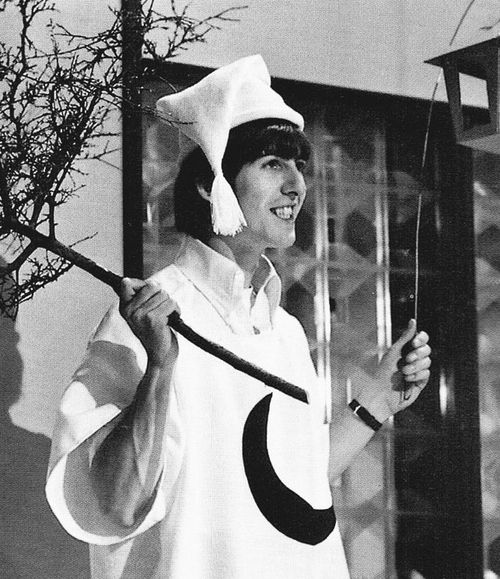The moon is directly referenced several times throughout MSND, and Professor Halasz mentioned in our classroom discussion that Elizabethan culture often connected the moon with images of Diana, the goddess of virginity. Other scholarly sources support this correlation, and many add that while the moon in MSND may represent virginity and fertility, it also comes to signify ambiguity and fickleness especially with regard to love and relationships. Furthermore, the moon appears to have magical qualities that reinforce Elizabethan beliefs of mysticism and mystery; much of the action in MSND takes place at night, under the moonlight, a source of mind-altering energy. After all, Shakespeare is often credited for coining the word lunacy, a word invoking the idea that the moon can influence one’s behavior. It is in this interpretative space that the moon as a symbol is most interesting because whenever the moon or moonlight is mentioned, the references made in the text appear to reveal a given character’s primal desires.
Most sources readily acknowledge that Theseus first mentions the moon in MSND to refer to his impending marriage to Hippolyta, reinforcing the idea that the moon is related to sex because its waning “lingers his desires” for his betrothed (I.I.4). In this initial context, the moon represents the signal to begin an official romantic relationship as it will come to “behold” the night of Hippolyta and Theseus’ solemnity (I.I.11). However, later in the same act Egeus gives the audience a taste for the moon’s subversive potential. In his speech, he accuses Lysander of stealing his daughter’s affection. Egeus claims that Lysander’s courtship was illegitimate because it occurred “by moonlight,” a setting which then goes on to contextualize the laundry list of “trifles” and “nosegays” with which Lysander wooed Hermia. As if the courtship would have yielded different results had it occurred in the day time. The audience may infer that the moonlight facilitates Hermia’s vulnerability to Lysander’s courtship, presumably because the moon alters one’s state of mind with lunacy.
Sex is secondary in association to the moon, not only does it represent virginity, but it also conveys notions of how the characters in the play measure the time that passes. When Theseus first mentions the moon, the audience first understands that the moon represents the passing of time, but then through Theseus’ speech we arrive at the notion that time is just leading up to the moment when Theseus may officially have access to his (sexual) desires. In the same vein, Theseus uses the waning of the moon as a countdown for Hermia who must then make a decision regarding the fate of her sexual life (I.I.92).
Thus, the waning of the moon functions sort of like a ticking time bomb, adding to the dramatic tension in the play. Hermia must make a choice between Lysander, Demetrius or to be “for aye in austerity and single life,” (where aye is used adverbially to mean “continually”) a choice in other words between death, unhappiness and ruin. Because despite the fact that an unmarried woman was running the country, unmarried women may have suffered the most in Elizabethan society. This difficult choice is underscored by the passing of the new moon, representing a transitionary period not only of celestial bodies but also for Hermia.
Lastly, it is fascinating that the moon actually gets personified in MDSN. In one of the Bard’s signature moves, a tailor by the name of Robin Starveling is cast as the moonshine in a play within a play. Nick Bottom as Pyramus even famously addresses the moon in a heartfelt monologue. Despite its lore and mysticism, the moon is reduced to a joke when the Mechanicals cast “the man in the moon” as a real character in their play. MSND is a work that loves to play opposites off each other, whether it be men and women, Athens and the forest, or contrasting the mysticism of the moon with the equally farcical representation of it. Since people like Theseus and Egeus like to imbue the moon with powers of persuasion and significance, Shakespeare takes that to the extreme and confronts the audience with a ridiculous representation of a symbol that was not taken lightly by Elizabethan society. Especially since Queen Elizabeth herself was often represented as the goddess of the moons and such in portraiture.
ps: had I known that Beatles performance existed a week ago, this whole post would have been about that alone. 🙂

